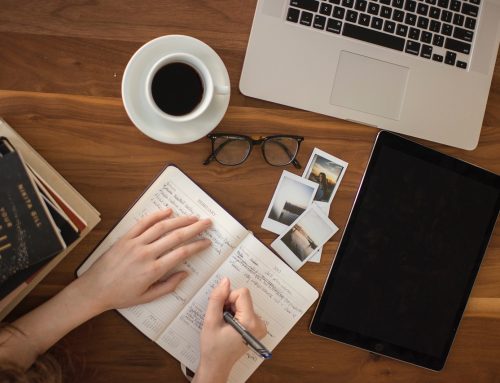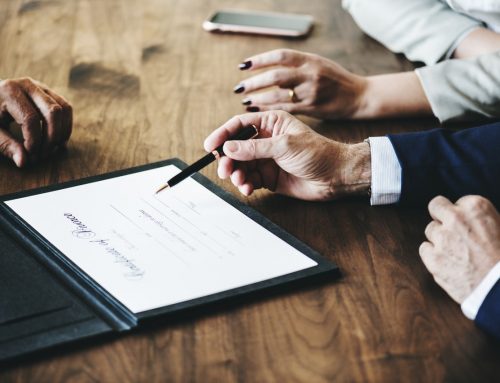What do happy couples know how to do that unhappy ones don’t?
This is the question behind a new meta-analysis of 21 unique research papers on the role of empathy in fostering satisfaction in marriage and other close relationships.
Specifically, the meta-analysis looked at an ability known as empathetic accuracy – an ability that couples therapists frequently help their clients to actively develop. Essentially, it means the ability to see, hear and accurately assess what our partners are thinking and feeling at any given moment.
You can think of empathetic accuracy, or EA, as a measure of how well we can read verbal and non-verbal cues that our partners send out and how well we interpret what we witness.
The authors of the meta-analysis found a strong relationship between EA and the level of satisfaction couples reported in their relationships. This makes the development of EA a key relationship skill for couples that want to improve the way they relate to one another.
A CLOSER LOOK AT EMPATHY IN RELATIONSHIPS
In order to improve our EA, we must improve our ability to understand and empathize with our partners. Doing this takes courage, since it requires us to put the other person’s feelings and emotions ahead of our own, at least for the moment.
People who are able to empathize with others are good at recognizing feeling states such as anger, stress or joy. They are able to respond to the other’s emotions in a way that shows understanding and concern. It doesn’t mean that they necessarily agree with what the other person is feeling; it simply means they are able to see and acknowledge the emotions they are witnessing.
WHY DO WE FAIL AT EMPATHY?
Ideally, we learn empathy over many years, with our primary lessons starting in childhood. Our families of origin are the learning ground for this important skill. Because empathy is a learned ability, it can be cultivated in our adult years even if it’s poorly developed while we’re growing up.
In families where deception, harsh criticism, substance abuse, domestic violence, sexual assault and other forms of harm and manipulation are present, the lessons of empathy have little chance to take root. We may bring some of these ways of being into our adult relationships and then wonder what went wrong when the relationships suffer or end.
Before we can empathize with anyone else, we must:
- Feel safe in the relationship
- Believe that our feelings are worth sharing
- Trust our partner to hear us and value our feelings
If you have come into your marriage or committed relationship with deep wounds from the past, these may need to be addressed as part of your work in developing stronger empathy toward your partner. Working with a trained marriage counselor or couples therapist is a good place to start.
IMPROVING YOUR EMPATHETIC ACCURACY
Once you feel confident that your own emotions are valid and worthy of respect from others, you can begin to improve your own EA. One good way to begin is simply to observe others and see if you can identify how they’re feeling.
Find a comfortable seat in a public place such as an airport, shopping center or library. Just observe the people around you. Notice their faces and the signals that their posture and movement send out. Count how many appear to be stressed, sad, cheerful, or preoccupied.
Also make note of people as they communicate with one another. Do those who are listening seem to be picking up on the cues you are seeing? Do some seem to be paying attention while others are hearing but not really listening or noticing their partners’ gestures and body language?
The next exercise involves learning how to observe your own spouse or partner. When you are together, remind yourself to look and listen intently, taking in the bigger picture. What do you see in his / her facial expressions? Can you tell if s/he is feeling energized and confident? Or tired, withdrawn, discouraged?
When you observe your mate, remember just to look – don’t comment. The goal is to see how well you can detect how s/he is feeling by listening and watching alone.
After a time, you can ask questions to see if your initial impressions were correct. Do this in a non-judgmental way. If you have the sense s/he is tired and stressed, you might simply ask, “Are you feeling worn out right now?” You may discover that the answer is yes – or you may be surprised to find that your mate is feeling jumpy and fearful inside as s/he thinks about a family or work problem.
Opening a dialogue gives you the chance to test your observational skills while you actively show you care how your partner is feeling. The conversation that results may be brief, but it conveys your concern for your partner’s emotions and helps you tune in to verbal and non-verbal cues.
PUTTING YOUR SKILLS TO WORK
Once you’ve learned more about your partner’s feelings by practicing these observation techniques, it’s time to put this knowledge to good use. One way to do this is to imagine the response you would like to get from your partner if the situation were reversed.
For example, imagine coming through the door at the end of the day feeling sad and discouraged. What could your partner do that would lighten your burden and help you feel uplifted?
While you’re imagining this helpful response, pause for a moment. Realize that the response you would most like to see may not match what your partner wants or needs. So while you can begin by offering the response you feel would be helpful and soothing, be ready to ask your partner what s/he needs most.
For example, you might say, “I notice you seem anxious and exhausted right now. I wanted to help out by asking about your day, but that seemed to make you feel even worse! Is there a better way to help you relax?”
If you’ve never had a conversation like this before, it may feel a little awkward at first, but that’s OK. Learning to improve your EA is like developing any new skill. It takes time and effort and you’ll make mistakes along the way. Don’t let uncomfortable feelings keep you from making progress.
NOT SURE WHERE TO BEGIN? CALL JANAE NOW
Are you experiencing stress in your marriage or other committed relationship? Janae Munday can help.
A skilled, experienced provider of couple’s therapy, Janae has enabled hundreds of men and women in the Phoenix area to see the larger patterns inside their relationships. She can guide you and your partner in developing the loving, empathetic communication that leads to a stronger relationship. Call Janae for a confidential appointment today.
Source





